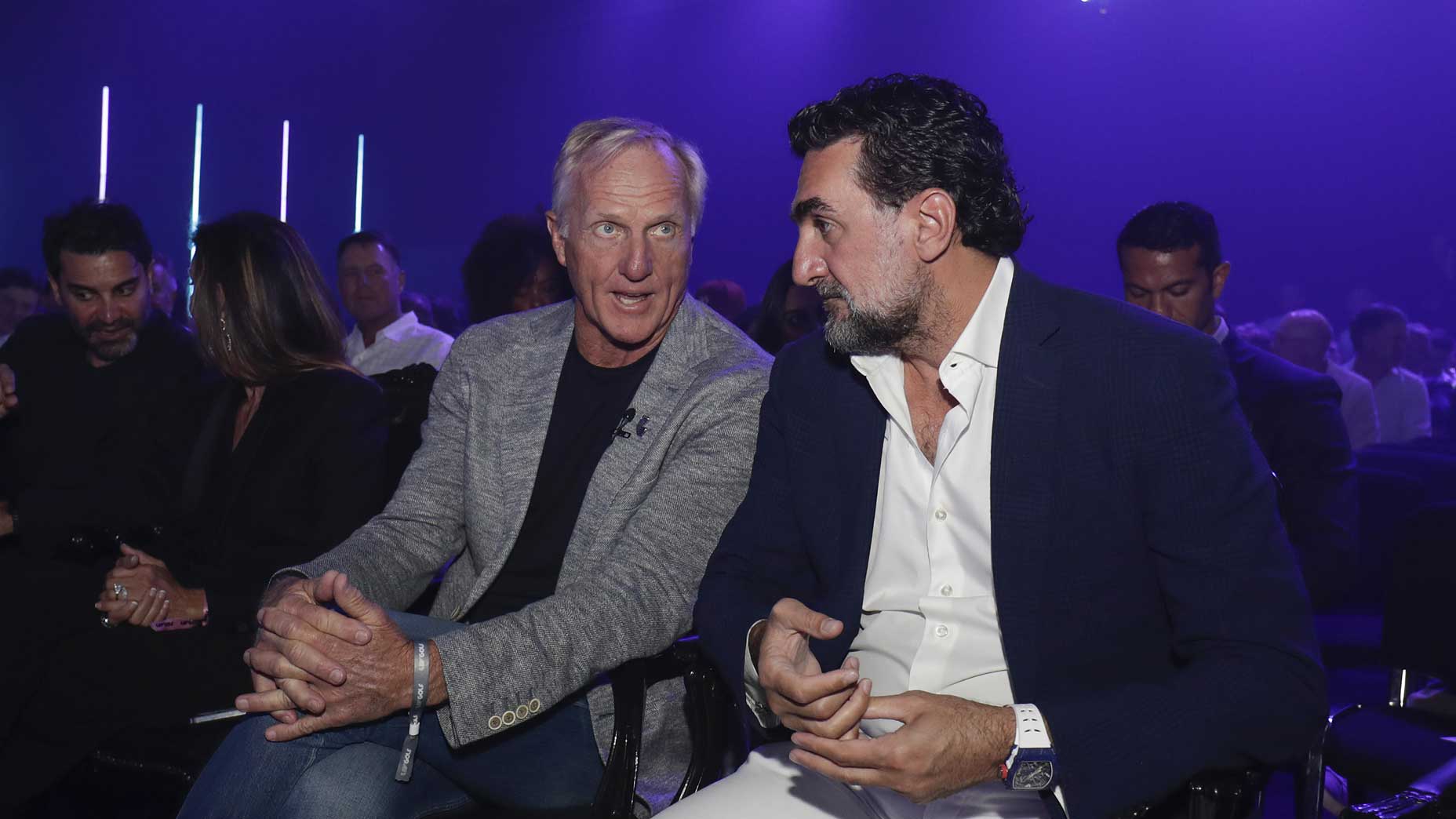Recent court filings have made public new allegations about the management of LIV Golf, further calling into question the balance of power between Greg Norman and his boss Yasir Al-Rumayyan.
As part of an amended complaint filed by the PGA Tour Thursday evening, Al-Rumayyan and the Saudi Arabian Public Investment Fund (PIF) were added as counter-defendants to the PGA Tour’s tortious interference case, a significant move as the Tour seeks to compel information and deposition from its legal and literal competition. Thanks to recent discovery of how LIV Golf allegedly operates, the Tour is looking to hold the Saudi fund responsible for actions it and Al-Rumayyan took that led to breaches of contract with many Tour players.
GOLF.com had previously reported about the Tour alleging Al-Rumayyan recruited players, approved contracts and promised legal defense for golfers who would break their contracts with the PGA Tour. But embedded within the new complaint were previously redacted allegations about how Norman has worked as a CEO in name only. “[Al-Rumayyan] is understood by LIV’s leadership to be its de facto CEO,” the Tour states, ”with LIV’s nominal CEO, Greg Norman, relegated to be a mere ‘figurehead.’”
Norman has been the CEO of LIV Golf for nearly 18 months now and has gone on the record detailing its independence from the Saudi Arabian government.
But the Tour alleges Norman is unable to make any significant decisions without direct approval from Al-Rumayyan, a Minister in the Saudi government and governor of the PIF, an investment fund aimed at diversifying the economic sources of Saudi Arabia.
According to the complaint, Norman’s public statements need approval from Al-Rumayyan, who “has been personally involved in decision-making on minutiae ranging from LIV’s scoring mechanism, hotel and airfare costs for players and their caddies, promotional launch video and logo, and LIV’s tournament calendar and structure, the ‘on-site activities (e.g. concerts)’ at LIV events and ‘[t]echnology around the event, including broadcasting and … data analytics.’”
These details of the allegations are now public after a recent court order determined Al-Rumayyan’s “alleged control over LIV goes to the heart of the counterclaim thus rendering the public interest in access to the information especially great.”
As evidence, the Tour cites email and text communication between Norman and Al-Rumayyan that it received via the discovery process. “When a decision regarding LIV’s launch date needed to be made, Norman presented options to Mr. Al-Rumayyan and said he was “looking forward to [Mr. Al-Rumayyan’s] direction.”
Why does this corporate structure matter? Because the question of who’s in charge is at the core of the PGA Tour’s legal arguments. The Tour initially filed its counterclaim exclusively against LIV Golf, but has amended it to include the PIF and Al-Rumayyan, two entities that have largely avoided deposition to this point. The extent of Al-Rumayyan’s response came when he was issued a subpoena and responded declaring that “I have no involvement in the day-to-day operations of LIV Golf, Inc.” and that disclosing certain official documents would make him subject to imprisonment.
Attorneys for Al-Rumayyan and the PIF have requested sovereign immunity for their clients, but a federal judge ordered that an exception to the Foreign Sovereign Immunities Act can be applied when a foreign citizen/entity conducts commercial activity in the United States. That’s why the Tour has been long interested in proving Al-Rumayyan’s control of the operation, despite Norman’s front-facing position.
There remains plenty to be seen as the two main lawsuits will play out, namely if Al-Rumayyan will sit for deposition. Whether that would take place in the States or Saudi Arabia is already a point of contention. Attorneys for Al-Rumayyan and the PIF have requested potential depositions be held in Riyadh rather than New York. Tour attorneys have argued that there are “legitimate safety concerns” the come with traveling to Saudi Arabia to conduct depositions.
